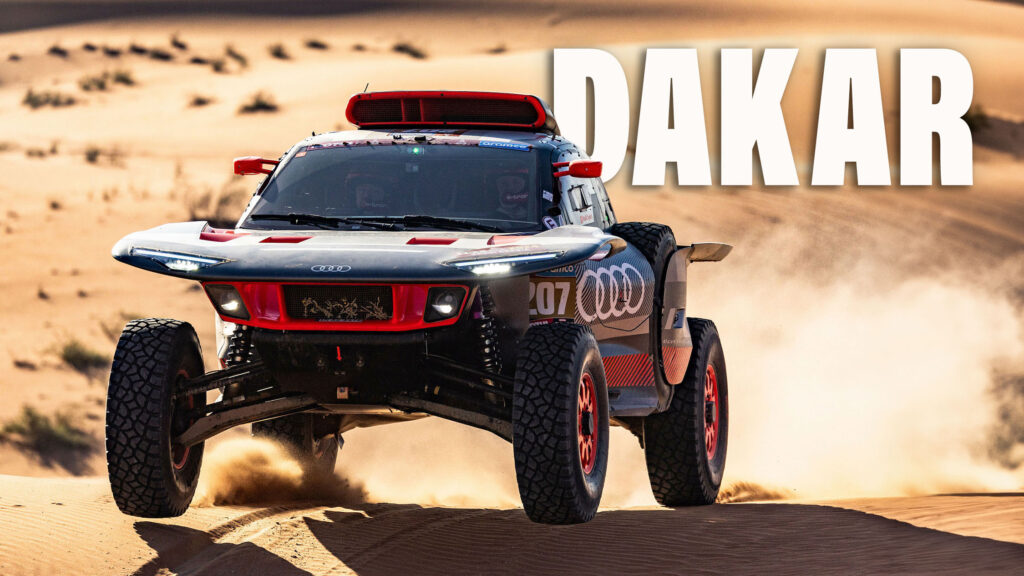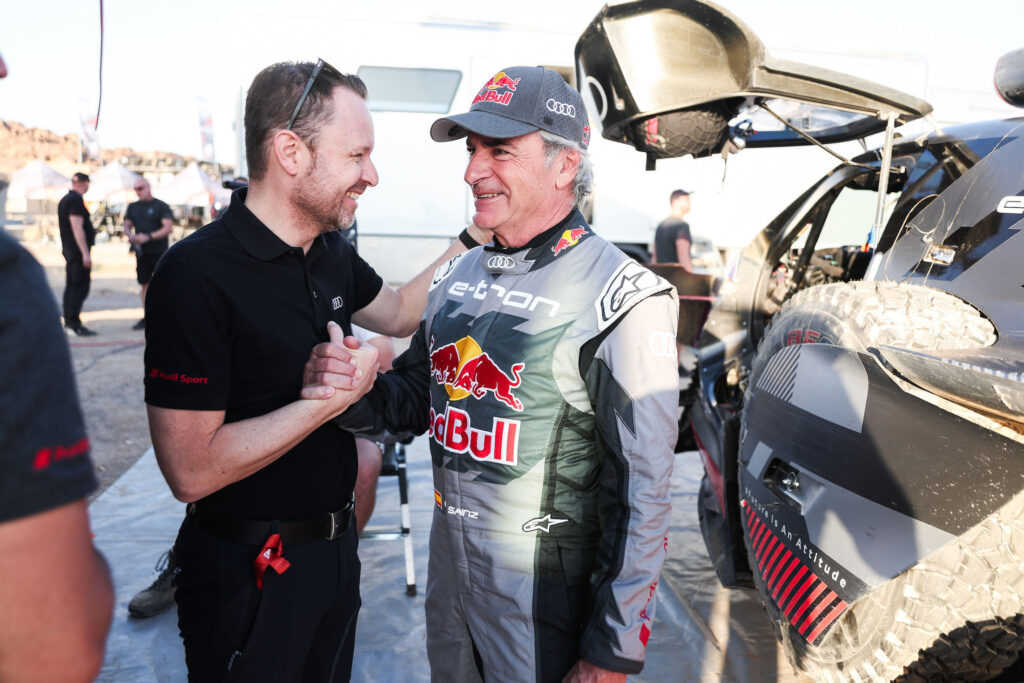61-year-old Spanish rally legend made history by securing the first victory for an electric-drive car
4 hours ago
 –>
–> 
–>
Despite being older than the modern Audi brand, which launched its first car in 1965, Spanish rally legend Carlos Sainz shows no sign of slowing down. Not only is he still driving; he’s still winning, and has just secured his fourth victory at the dangerous Dakar Rally, giving Audi its first win in the process.
This was Audi’s third crack at the Dakar, and will likely be its last as it begins to shift its energy towards F1. The win was also significant because it was the first time a car powered by electricity had come home in first place. The scratch-built RS Q e-tron has a 2.0-liter engine acting as a range extender to charge a battery, but the racer’s four wheels are turned by electricity alone.
Sainz didn’t win a single stage, but he was consistent and avoided trouble. While rivals, including the 61-year-old Spaniard’s greatest threat, Sebastian Loeb and his Prodrive Hunter, got close on occasion, they suffered problems that allowed Sainz to stay ahead. Nine-times WRC champ Loeb saw his chances of victory ended by mechanical issues this week, ultimately finishing third overall behind the Overdrive Toyota of Belgian Guillaume de Mevius, who trailed Sainz by 1h 20m 25sec.
advertisement scroll to continue
Related: Audi RS Q E-Tron Gets Safety Improvements And More Power For 2024 Dakar

Meanwhile over in the two-wheel category, American Honda rider Ricky Brabec won the motorcycle race for the second time. TwinTrail Racing Team’s Carles Falcon wasn’t so fortunate. He passed away earlier this month having suffered a crash on his KTM that caused spinal fracture in an early stage of the race.
Audi launched its bid to become the first brand to win the Dakar using electric power back in 2020, even quitting Formula E to make it happen. But it only managed ninth place on its maiden Dakar in 2022 and slipped to 14th in 2023.

 <!–
<!– –>
–>